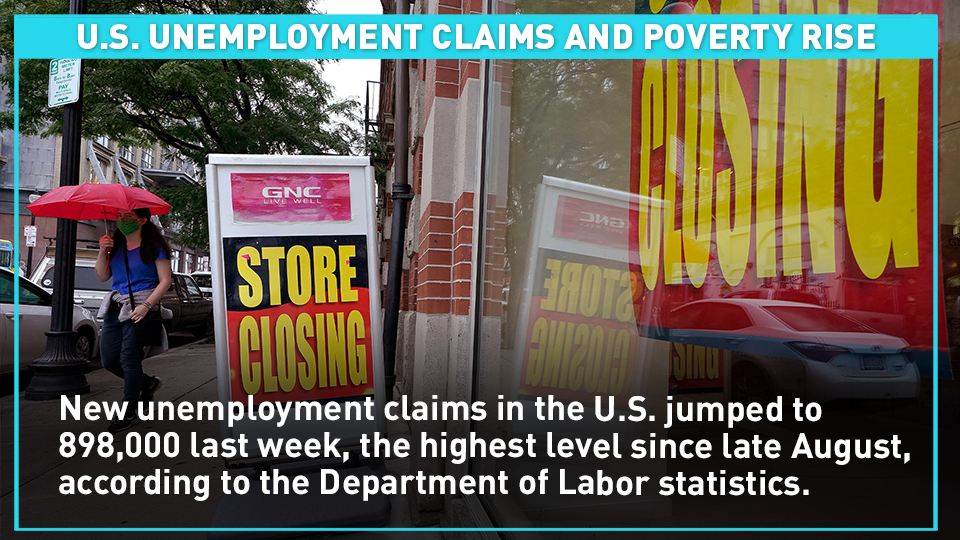
Click right to read more.
Click right to read more.
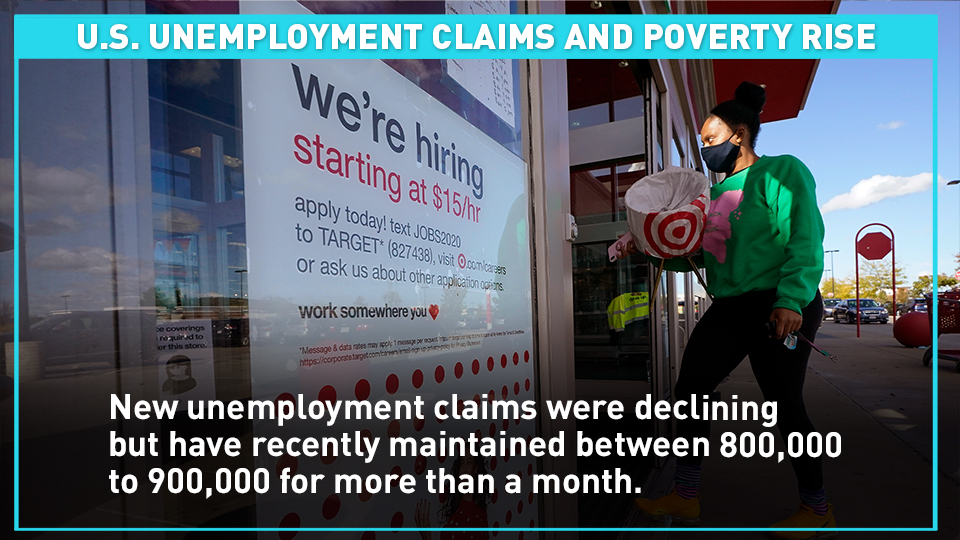
Click right to read more.
Click right to read more.
New unemployment claims in the U.S. jumped to 898,000 last week, the highest level since late August.
According to new data released on Thursday by the U.S. Department of Labor statistics, new unemployment claims were declining after peaking in March but have recently maintained between 800,000 to 900,000 for more than a month.
While the number of people collecting unemployment and continuing claims have declined, theses declines represent people who have reached the maximum duration of payments available through their state unemployment program and are now receiving benefits from the federal government, according to the Wall Street Journal.
But the rising number of people using extended unemployment benefits reflects many are experiencing long periods of unemployment.
And those benefits are set to expire at the end of 2020.
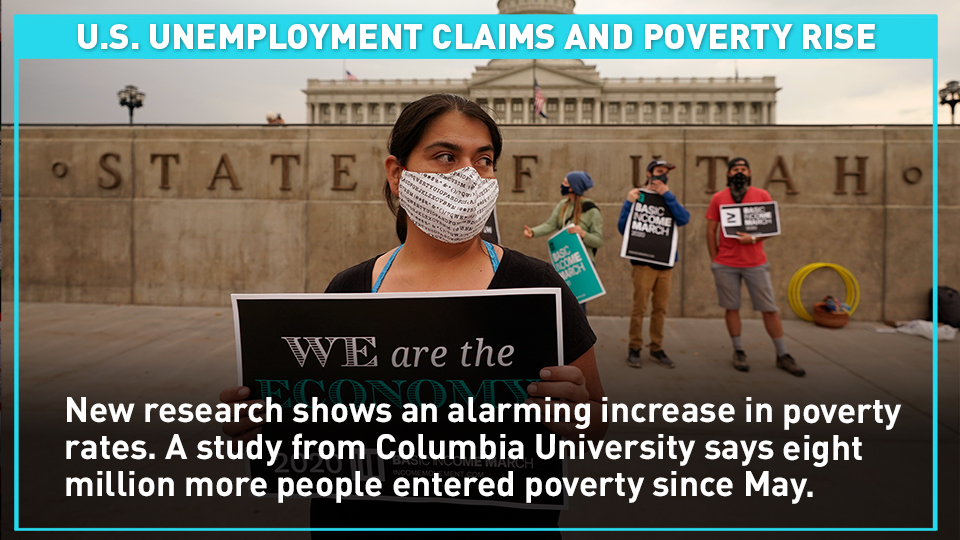
Click right to read more.
Click right to read more.
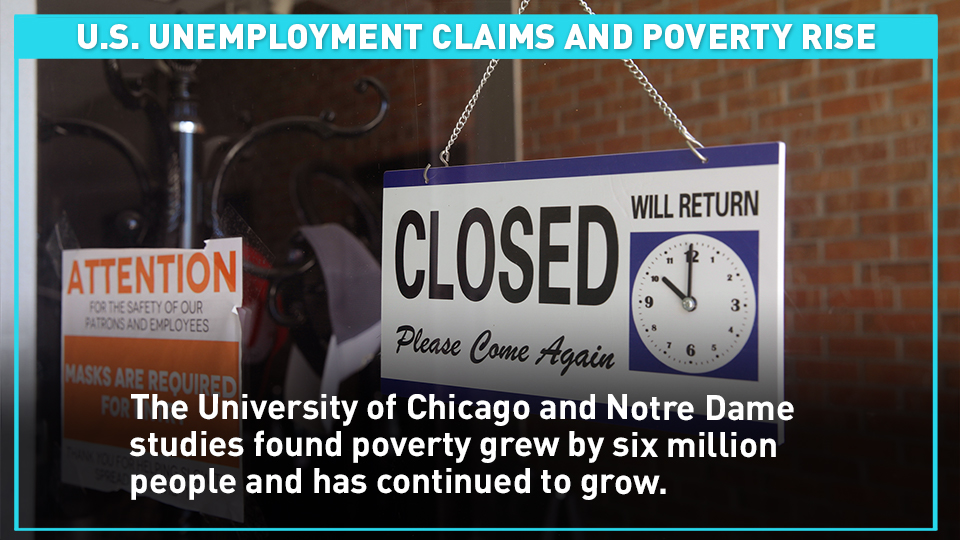
Click right to read more.
Click right to read more.
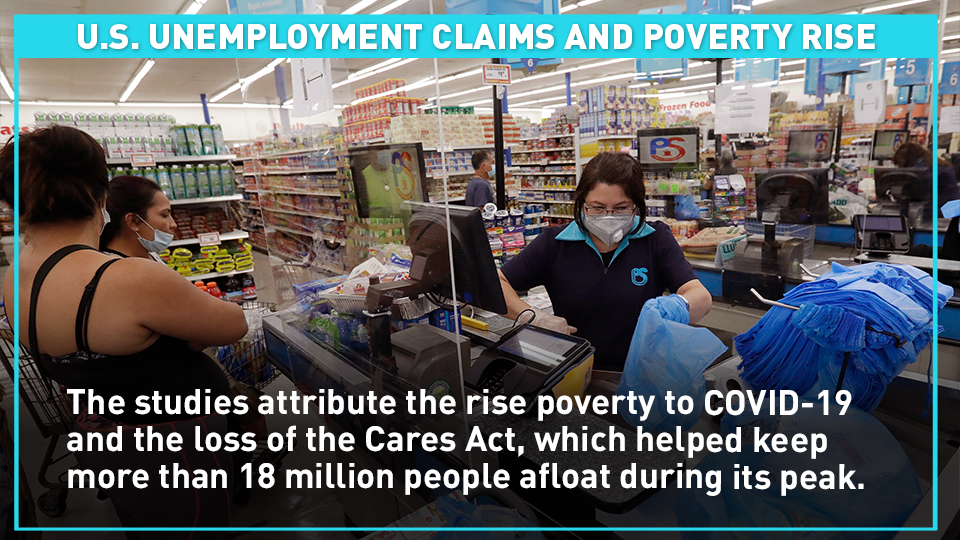
Click right to read more.
Click right to read more.
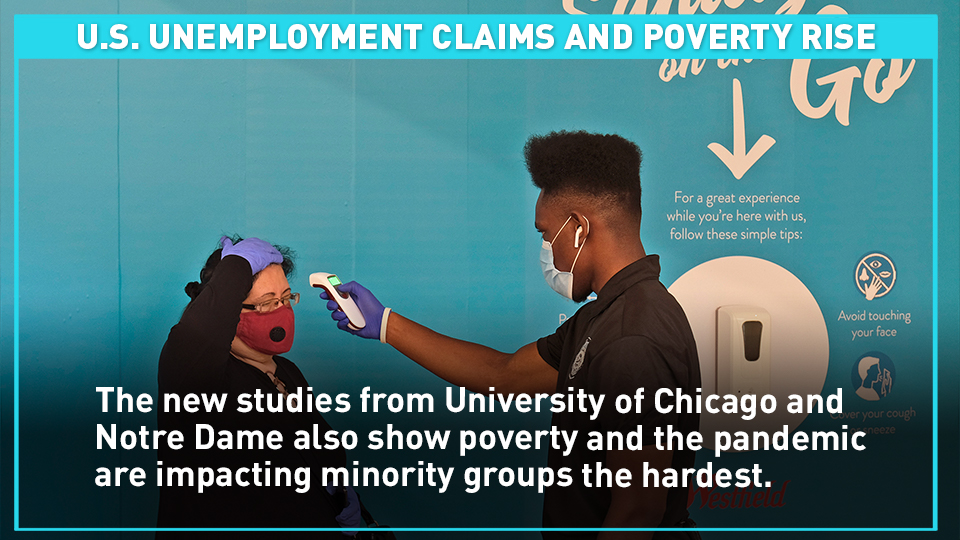
Click right to read more.
Click right to read more.
Researchers from Columbia University, the University of Chicago and Notre Dame have found an alarming increase in people entering poverty. After falling by four million at the start of the pandemic because of a $2 trillion emergency federal aid package called the Cares Act, the number of poor people in the U.S. has risen by eight million since May.
The University of Chicago and Notre Dame studies found poverty grew by six million people but unlike Columbia University, Chicago and Notre Dame show poverty has continued to grow rather than improve.
Bruce D. Meyer, an economist at the University of Chicago and an author of the study told the New York Times these numbers are concerning. "They tell us people are having a lot more trouble paying their bills, paying their rent, putting food on the table," he said.
The studies attribute the COVID-19 pandemic and the loss of the Cares Act to the rise in poverty.
Columbia researchers say this aid helped keep more than 18 million people out of poverty during its peak in May.
The program expanded unemployment benefits and provided stimulus checks for families. And while the Democrats in the House of Representatives has passed multi trillion-dollar aid package, the Republican led Senate has proposed smaller plans, leading to gridlock between both parties.
The new studies from Chicago and Notre Dame also show poverty and the pandemic are impacting minority groups the hardest.
"Black people and Latinos are more than twice as likely as white people to be poor," according to the studies.
Based off new unemployment numbers, the AP reports the economy is still about 10.7 million jobs away from recovering the 22 million jobs lost when the pandemic started.
Thursday's unemployment numbers also don't include California, which typically represents about one-fourth of unemployment claims in the country. The state paused processing new claims for two weeks so they could sort through a backlog of claims and implement fraud prevention technology.
But unemployment applications rose in 17 other states. A report from Moody's Analytics released Thursday shows nearly 12 million households said they are unsure if they'll be able to continue their mortgage payments.
Experts say the rise in unemployment and poverty shows a need for new federal aid.
Check out The China Report, our new weekly newsletter. Subscribe here!